Heimliche Ehen (1956)
Gênero : Drama, Comédia, Drama, Comédia
Runtime : 1H 31M
Director : Gustav von Wangenheim
Escritor : Gustav von Wangenheim
Sinopse

Kate Forster é uma médica solitária que morava numa casa à beira de um lago que acaba de vender. Sem perceber exactamente porquê, começa a trocar cartas de amor com o novo proprietário, Alex, um arquiteto frustrado. Este relacionamento escrito dura dois anos até que, percebendo que estiveram a perder tempo, eles decidem correr atrás dele...
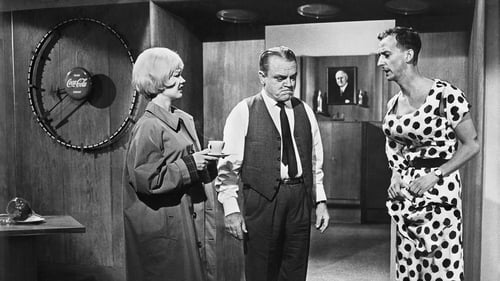
Berlim, logo após a Segunda Guerra Mundial. CR MacNamara preside a filial da Coca -Cola da Alemanha. Ele está trabalhando duro e tenta dar o seu melhor para impressionar a sede em Atlanta, uma vez que ele já ouviu falar que a sede europeia em Londres em breve estará vaga e estão à procura de um novo chefe. Porém o Sr. Hazeltine, Vice Presidente da Coca-Cola, pede a MacNamara para cuidar de sua filha Scarlett, quem vai fazer uma viagem pela Europa. Scarlett, no entanto, não se comporta da maneira que uma menina jovem respeitável de sua idade deveria. E começa a confusão.
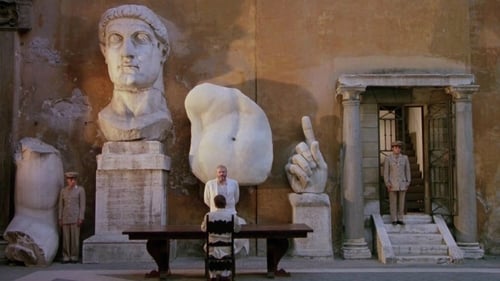
Um arquiteto norte-americano chega à Itália para supervisionar uma exposição de Boullé, arquiteto francês que ele idolatra, famoso por suas construções ovais. Quando fica sabendo que seu ídolo ingere alimentos muito parecidos com os seus próprios, fica desconfiado que sua jovem esposa (Chloe Webb) o está envenenando. As barrigas começam a se tornar uma fixação para ele, e começa a ficar doente e cada vez mais paranoico. Durante o período de nove meses, ele se torna obcecado por sua própria barriga. Uma pérola dentro do gênero avant-garde.
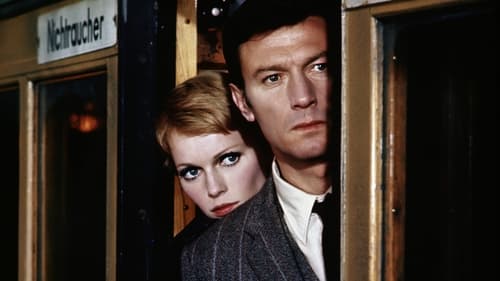
O agente Alexander Eberlin é designado pelos britânicos para caçar um espião russo, conhecido por eles como Krasnevin. Apenas Eberlin sabe que Krasnevin não é outro senão ele mesmo! Ele é o agente duplo. Quem o acompanhando em sua missão é um parceiro implacável, que gradualmente vai descobrindo seu segredo, percebendo como Eberlin tenta se livrar de uma situação desesperadora. (e 12 - Estimado 12 Anos)
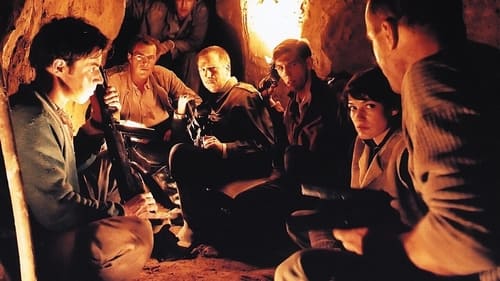
Insatisfeito com o regime comunista da Alemanha Oriental, o campeão de natação Harry Melchior decide fugir. Mas ele não quer abandonar sua irmã Lotte e promete que voltará para resgatá-la. Após conseguir atravessar a fronteira com documentos falsos, Harry procura a ajuda do amigo Matthis e de mais dois jovens ativistas, Fred e Vic, e propõe a construção de um túnel por baixo do muro que separa Berlim Oriental da parte Ocidental para buscar seus familiares do outro lado da fronteira. O projeto é aceito por todos e, para financiá-lo, Harry faz um acordo com a rede de TV norte-americana NBC, que terá exclusividade na cobertura do plano.
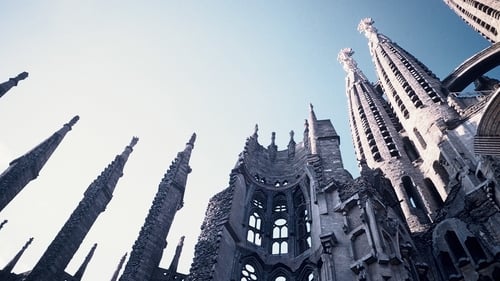
Catalan architect Antonio Gaudí (1852-1926) designed some of the world's most astonishing buildings, interiors, and parks; Japanese director Hiroshi Teshigahara constructed some of the most aesthetically audacious films ever made. With camera work as bold and sensual as the curves of his subject's organic structures, Teshigahara immortalizes Gaudí on film.

The Richardson Olmsted Campus, a former psychiatric center and National Historic Landmark, is seeing new life as it undergoes restoration and adaptation to a modern use.

Com problemas no apartamento, Leonor vai até o escritório de arquitetura responsável pela obra, a procura de Nelson Jara. Lá, os sócios da empresa, Mario e Marta, juntamente com o arquiteto Pablo, dizem desconhecer esse nome, mas a verdade é que o grupo esconde algo perigoso.
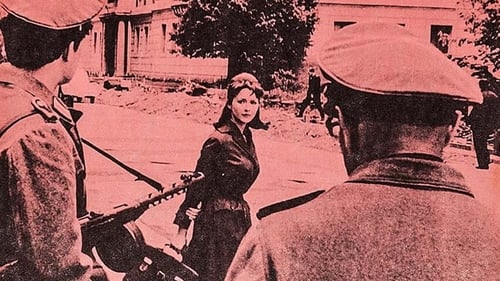
East Berlin, shortly after the construction of the Berlin Wall. Kurt Schröder and his family dig a tunnel to escape to West Berlin as they struggle to overcome the obstacles blocking their underground path to freedom.
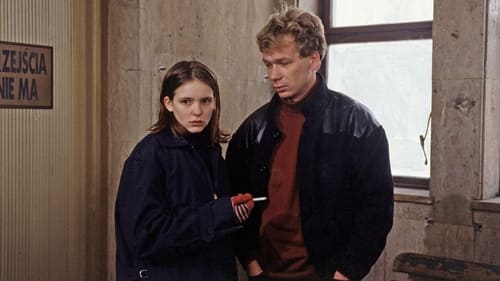
OSTKREUZ tells the episodic story of 15-year-old Elfie, who literally and metaphorically inhabits a no-man’s-land between the two Germanies shortly after the fall of the Berlin Wall. The film deploys a neorealist aesthetic to reinforce the difficulties confronting the girl, and by inference, Germany.
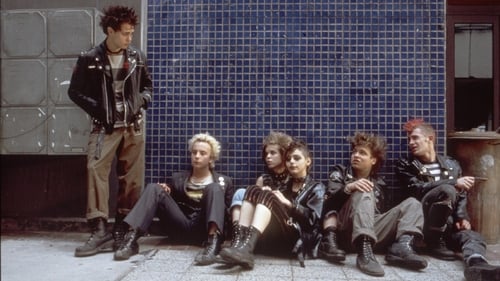
Germany 1982: The country is divided into two parts. Nele, coming from West-Germany, travels to East-Germany where she meets Captain, singer of a band. They fall in love with each other, but the regime "takes care" of their relationship, meaning: They can not see each other again. Germany 1990: The country is reunited. Nele starts searching their lost love...
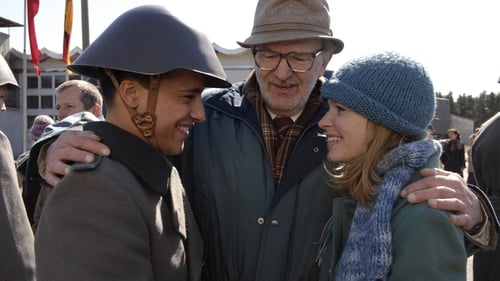
East Germany, 1988: working as a state security service agent, Jürgen Kaiser is loyal to the party line, but worried about his son Marco, a punk. As he is arrested after a concert, Marco is forced to join the army, where he surprisingly identifies with socialism and believes he has to defend his country against the capitalist enemy. While Jürgen is astonished, his wife Hanna and Marco's girlfriend Anja, supporting the civil rights movement, don't like his new attitude...


In 1919 an art school opened in Germany that would change the world forever. It was called the Bauhaus. A century later, its radical thinking still shapes our lives today. Bauhaus 100 is the story of Walter Gropius, architect and founder of the Bauhaus, and the teachers and students he gathered to form this influential school. Traumatised by his experiences during the Great War, and determined that technology should never again be used for destruction, Gropius decided to reinvent the way art and design were taught. At the Bauhaus, all the disciplines would come together to create the buildings of the future, and define a new way of living in the modern world.

Long before he played the corpulent Goldfinger, German actor Gert Froebe was a scarecrow-skinny comedian. In Berliner Ballade, Froebe makes his screen debut as Otto, a feckless Everyman who tries to adjust to the postwar travails of his defeated nation. Stymied by black-market profiteers and government bureaucrats, Otto begins fantasizing about a happier life at the end of that ever-elusive rainbow. Director R. A. Stemmle doesn't have to strive for pathos: he merely places his gangly star amidst the ruins of a bombed-out Berlin, and the point is made for him. Filmed in 1948, Berliner Ballade was later released in the U.S. as The Berliner.
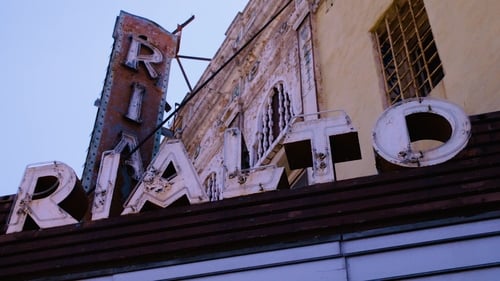
Celebrating the splendor and grandeur of the great cinemas of the United States, built when movies were the acme of entertainment and the stories were larger than life, as were the venues designed to show them. The film also tracks the eventual decline of the palaces, through to today’s current preservation efforts. A tribute to America’s great art form and the great monuments created for audiences to enjoy them in.
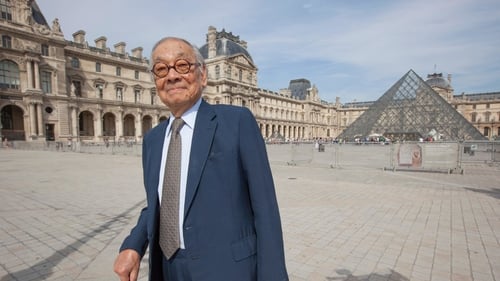
Architect I.M. Pei speaks about his famous works, such as the addition to the Louvre in Paris, the East Wing of the National Gallery of Art in Washington, D.C., and the Meyerson Symphony Center in Dallas, Texas. Footage of these projects shows both interiors and exteriors. Various other experts comment on the impact and importance of Pei's work.

A young man from an early age falls in love with a girl whose family is not in good standing with the ruling Communist party. His father however is a member of the "Stasi", the secret state police. The father not only hinders his son's relationship with the girl, but he arranges for his son, after finishing school, to become a Stasi spy himself.

Architect, engineer, geometrician, cartographer, philosopher, futurist, inventor of the famous geodesic dome and one of the most brilliant thinkers of his time. Fuller was renowned for his comprehensive perspective on the world's problems. For more than five decades he developed pioneering solutions reflecting his commitment to the potential of innovative design to create technology that does "more with less" and thereby improve human lives. He spent much of his life traveling the world lecturing and discussing his ideas with thousands of audiences. Now more relevant than ever, this film captures Fuller's ideas and thinking told in his own words.

A documentary focusing on the rebuilding projects in Berlin after the fall of the Berlin Wall.

















